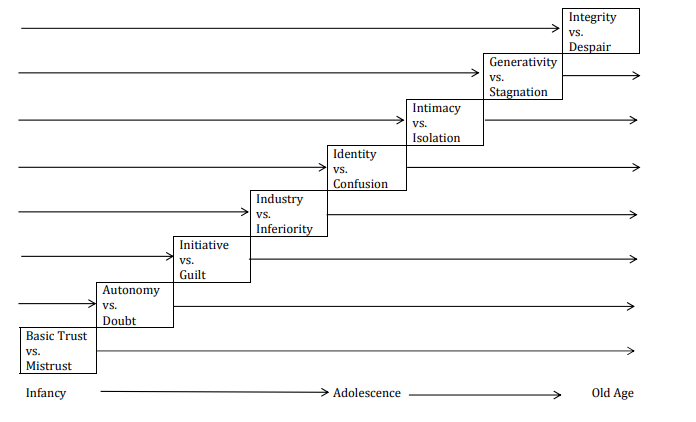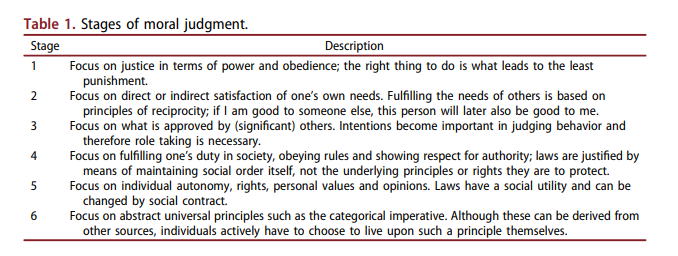Introduction
Human development theories help social scientists, psychologists, and educators learn more about how people change throughout their lives. The importance of learning more about human development is significant as “Knowing about other people and their circumstances can help us live and work with them more effectively” (Lumen Learning, 2017, p. 5). Human psychology is an ever-evolving subject; therefore, society would perceive specific development ideas differently depending on the cultural and societal norms of any particular era. Therefore, to get a full picture and systematize knowledge about this subject, studying major human development thinkers is essential. Thus, exploring the history of Human Development theories that are focused on various aspects of social psychology could be challenging yet insightful.
The significance of Human Development Theories
First, it is interesting to learn more about the importance of classical theories of human development, which were introduced by Freud, Erikson, Piaget, Vygotsky, and Kohlberg. The deeper comprehension of which is possible through systematically studying their theories by identifying their focus and methodology. Looking into these theories could help understand the complexity of development the human goes through from infancy to old age. Overall, studying these theorists may lead to a better comprehension of human development studies as a whole, making them more coherent. Learning more about human development theories may help to structure the way people behave throughout the years and to see deeper the reasons for possible deviances or successes (Lumen Learning, 2017). Thus, theories and thinkers open doors to learning about change in humans as well as structuring the development ideas and learning more about the cultural and societal contexts of each of the influential theories.
Human Development Thinkers and Their Theories
One of the early influential Human Development thinkers was Sigmund Freud with his theory of Psychosexual Stages of Development. The first stage of Freud’s method is oral, which describes the need for a child to explore the world through their mouth (Lumen Learning, 2017). The next stage is anal, where a toddler is old enough to be potty-trained, and Freud describes this as a significant period of human development. The next stage is phallic, which discovers the period of the first sexual attraction, which, according to Freud, should be towards a child’s parents. The fourth stage is latent, as a child can make friends and focus on gaining human connections (Lumen Learning, 2017). The last stage occurs during the teenage years and is connected to the sex drive and the desire to reproduce. Overall, the neglect of any of the stages might result in deviances throughout the other parts of life.
The vital aspect of his theory is that a person may get fixated on a specific stage due to the lack of care coming from a parent figure (Lumen Learning, 2017). Thus, if a child’s needs at any stage are dissatisfied, a grown adult will continue to struggle with the issues coming from the fixation. For instance, if a person cannot gain friendships during a latent stage, they will be more likely to be very shy and lack self-confidence as an adult. Another example would be if a parent cannot assist a child correctly in the oral stage, a child will continue to face struggles associated with oral practices like the desire to eat, drink, or smoke. Overall, Freud’s Psychosexual Stages of development explore the five essential stages of a child’s and a teenager’s life that might have a substantial influence on their overall development.
Another influential Human Development theorist is Erik Erikson, who contributed to the topic through his Psychosocial Development theory. Freud inspired Erikson in many ways; however, the concepts significantly differ as Erikson focused on the cultural and social aspects of human life rather than on sexual desires (Syed & McLean, 2017). Erikson’s theory is based on the eight psychosocial tensions, as presented in Figure 1 (Appendix A), each of which encounters throughout their lifetime. The pressures begin with Trust versus Mistrust that is especially prevalent during infancy as a child is building the first relationship with the world. The tensions end with Integrity versus Despair that is common in older people as they evaluate and reflect on the quality of their experiences during their lifetime.
Despite a strong influence by Freud, Erikson’s ideas cover the entire life of a person rather than only the early years, as in Freud’s ideas (Syed & McKean, 2017). Erikson believes that to study the process of human development, one must focus on the adult years as well. Moreover, according to Erikson, it is essential to emphasize that all of the eight stages may occur in people throughout their life span. Therefore, the division of life stages in his theory only suggests that a person is more likely to face a certain level of tension at a certain age. Overall, Erikson’s Psychosocial Development theory is focused on the social and cultural context of a human developing through discovering the tensions that people are facing throughout their lifespan.
The other Human Development thinker is Jean Piaget, with his influential theory of Cognitive Development. Piaget was mainly concerned with moral development in humans, as he noticed that children and teenagers view issues of ethics differently depending on their developmental stage (Moheghi et al., 2020). The first stage of sensorimotor intelligence is based on the infants’ perception of the world through smell, taste, and basic movement (Lumen Learning, 2017). The next stage is the preoperational stage of development, where children start to learn the alphabet and look at the world using symbols (Lumen Learning, 2017). The concrete operational stage is connected to the use of logic, and the last step or formal operational stage is about the ability to think abstractly and logically at the same time. Some aspects of Piaget’s Cognitive Theory were criticized, primarily because of his over fixation on biological alterations and neglect of changes connected to an individual’s environment and culture. Overall, Piaget’s theory is divided into four distinct parts and conglomerate that children’s intellectual abilities change over time with their maturation.
In addition, Soviet physiologist Lev Vygotsky became famous due to his Sociocultural Theory of Human Development. Vygotsky believed that each individual could potentially be more productive and have higher overall abilities depending on appropriate directions from others (Lumen Learning, 2017). Therefore, his theory is specifically focused on the cultural and social interaction that a person is experiencing within a society on the person’s cognitive and emotional abilities (Daneshfar & Moharami, 2018). According to Sociocultural Theory, the crucial aspect of development is the capability of a person to respond to help or mediation concerning their current level of skills (Daneshfar & Moharami, 2018). Thus, Vygotsky suggested that Human Development occurs during human interaction with other people using the appropriate level of mediation.
Lastly, the psychologist Lawrence Kohlberg introduced the theory of Moral Development. Kohlberg considers individuals’ reasoning abilities to correspond to their level of moral Development (Moheghi et al., 2020). As presented in Table 1 (Appendix B), he divided his theory into six stages, where each step constitutes a unique way of comprehending moral issues (Enden et al., 2018). For instance, a younger child would be focused on embracing the morality of the world through obedience, whereas an adult would focus on expressing personal opinions and maintaining freedoms (Enden et al., 2018). Thus, by concentrating on Moral Development, Kohlberg was able to divide the stages of Human Development into four distinct parts that vary based on the individual’s age and experience.
Conclusion
To sum up, human development has been a topic of interest to many exceptional psychologists and sociologists throughout the years. Each developmental theory varies based on the theorist’s focus and approach. Thus, Freud introduced the five Psychosexual Stages of development with an emphasis on human sexuality. After that, Erikson proposed a Psychosocial Development theory based on tensions and provides deep insights into the social and cultural aspects of human development. Furthermore, Piaget introduced the four main stages of cognitive development theory intending to explore individuals’ mental abilities over time of growing older. Besides, in his sociocultural theory, Vygotsky showed that human development occurs with the help of the rightly chosen approach of caretakers, teachers, and peers. Lastly, in the four parts of Moral Development theory, Kohlberg explained that humans’ level of maturity is especially noticeable based on their moral concerns during their lifetime. Overall, comparing and studying these theories can allow for a greater understanding of the scope of possible reasons for human development.
References
Daneshfar, S., & Moharami, M. (2018). Dynamic assessment in Vygotsky’s Sociocultural Theory: origins and main concepts. Journal of Language Teaching and Research, 9(3), 600. Web.
Enden, T. V. D., Boom, J., Brugman, D., & Thoma, S. (2018). Stages of moral judgment development: applying item response theory to defining issues test data. Journal of Moral Education, 48(4), 423–438. Web.
Lumen Learning. (2017). Psychology 172 Developmental Psychology. College of the Canyons Santa Clarita.
Moheghi, M., Ghorbanzadeh, M., & Abedi, J. (2020). The investigation and criticism of moral development ideas of Kohlberg, Piaget, and Gilligan. International Journal of Multicultural and Multireligious Understanding, 7(2), 362–374.
Syed, M., & McLean, K. C. (2017). Erikson’s Theory of Psychosocial Development, 1-7. Web.
Appendix A

Appendix B

